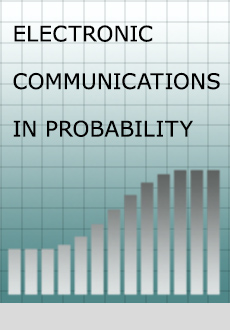Abstract
The Deffuant model is a spatial stochastic model for the dynamics of opinions in which individuals are located on a connected graph representing a social network and characterized by a number in the unit interval representing their opinion. The system evolves according to the following averaging procedure: at each time step, two neighbors are randomly chosen and interact if and only if the distance between their opinions does not exceed a certain confidence threshold, with each interaction resulting in the neighbors’ opinions getting closer to each other. Most of the analytical results established so far about this model assume that the individuals are located on the integers. In contrast, we study the more realistic case where the social network can be any finite connected graph. In addition, we extend the opinion space to any bounded convex subset of a normed vector space where the norm is used to measure the level of disagreement or distance between the opinions. Our main result gives a lower bound for the probability of consensus. Our proof leads to a universal lower bound that depends on the confidence threshold, the opinion space (convex subset and norm) and the initial distribution, but not on the size or the topology of the social network.
Citation
Nicolas Lanchier. Hsin-Lun Li. "Probability of consensus in the multivariate Deffuant model on finite connected graphs." Electron. Commun. Probab. 25 1 - 12, 2020. https://doi.org/10.1214/20-ECP359
Information





